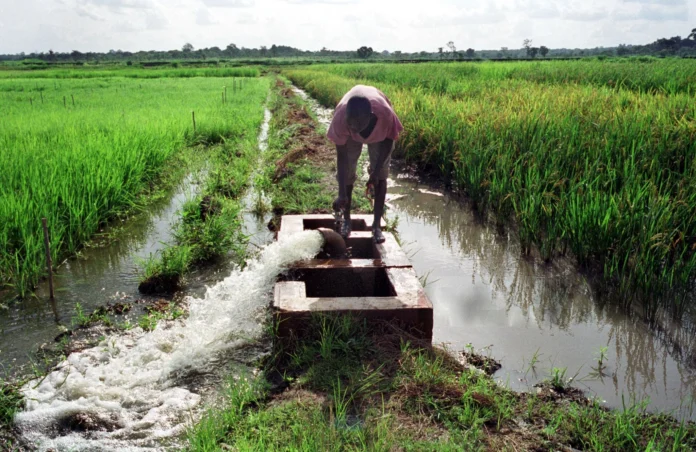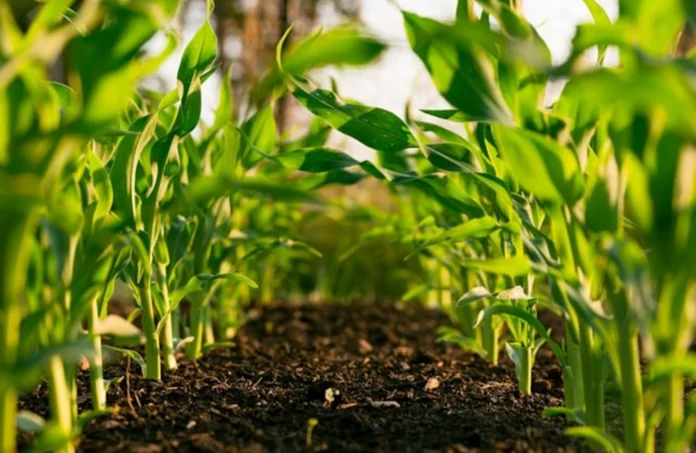Arabfields, El Oued, Algeria — In the arid expanse of Algeria’s southeastern Sahara Desert, the province of El Oued is emerging as a vital hub for agricultural innovation and production, defying harsh environmental conditions to cultivate essential crops. For the 2025-2026 agricultural season, open-field tomato farming in El Oued has expanded to cover 3,700 hectares, marking a 3% increase from the previous year. This growth, driven by strong farmer enthusiasm and promising market demand, underscores the region’s strategic role in bolstering national food security. Officials from the local Chamber of Agriculture announced the figures on Tuesday, highlighting the sector’s resilience and potential amid global challenges like climate variability and water scarcity.
The uptick in tomato cultivation reflects a broader trend of optimism among El Oued’s farmers, fueled by the successes of the prior season. Djelloul Othmani, president of the Chamber of Agriculture, attributed the enthusiasm to “the impressive results achieved last season in tomato production, a highly sought-after commodity in national markets.” The sowing campaign, which concluded at the end of September, has set the stage for what experts anticipate will be a bountiful harvest.
Projections for the current season estimate a yield exceeding 2.6 million quintals, approximately 260,000 metric tons, representing a 5% rise over the previous year’s output. This increase not only highlights improved farming techniques but also aligns with Algeria’s national efforts to enhance domestic food production and reduce import dependency. Tomatoes, a staple in Algerian cuisine used in everything from fresh salads to processed sauces, play a crucial role in the country’s agro-food industry, which processes over 1.3 million tons annually nationwide.
Several communes within El Oued stand out for their contributions to this effort. Hassi-Khelifa, Débila, El-Magrane, Trifaoui, and Reguiba boast fertile lands with high agricultural potential, benefiting from the region’s unique subterranean water resources. These areas have become synonymous with high-quality tomato yields, drawing on both traditional methods and modern practices to maximize productivity.
In El Oued, the open-field tomato season typically spans from early August to late September for planting, with harvesting occurring between December and February. This timeline allows farmers to capitalize on cooler winter months for maturation, avoiding the extreme summer heat that characterizes the Saharan climate. The province’s ability to sustain such agriculture in a desert environment is largely thanks to the ancient Ghout system, a UNESCO-recognized traditional hydro-agricultural technique.
The Ghout method involves digging funnel-shaped depressions in the sand to reach shallow groundwater aquifers, creating self-irrigating oases without the need for pumps or external energy. This ingenious system, practiced for centuries in El Oued, nicknamed the “City of a Thousand Domes” for its distinctive architecture, supports not only tomatoes but also dates, potatoes, peanuts, and onions. With over 9,500 Ghouts dotting the landscape, the region maintains a rich biodiversity, including millions of palm trees that provide shade and additional income through date production.
El Oued leads Algeria’s wilayas, or provinces, in open-field tomato production, a distinction that has prompted the establishment of a dedicated national market in El-Magrane, located about 35 kilometers northeast of the provincial capital. This marketplace serves as a central hub for wholesalers and distributors, facilitating the flow of fresh produce to urban centers like Algiers and Oran, and potentially positioning the region for future exports.
The tomato expansion is part of a larger agricultural footprint in El Oued, where exploited farmland exceeds 100,000 hectares, growing annually by 1% to 5%. This steady extension is supported by government initiatives aimed at desert reclamation and sustainable development, including investments in aquifers and renewable energy for irrigation. The province has also become Algeria’s top potato producer, with annual yields surpassing 5 million quintals, further diversifying its output and contributing to national food sovereignty.
Economically, agriculture employs around 42% of El Oued’s workforce, providing livelihoods in a region historically reliant on oil and gas. The sector’s growth has spurred related industries, such as processing plants that convert fresh tomatoes into concentrates and sauces. Recent developments, including the construction of semi-closed greenhouses in the desert, demonstrate a shift toward high-tech farming to combat challenges like pests and water efficiency. For instance, the whitefly (Bemisia tabaci), a notorious pest in tomato crops, poses ongoing threats, prompting research into bioecological controls and integrated pest management.
In a national context, Algeria’s tomato sector is poised for expansion, with calls from experts to overhaul the industry for greater export potential. Global fresh tomato exports reached $12.4 billion in 2024, yet Algeria’s share remains modest despite its production capacity. Reforms focusing on quality standards, supply chain improvements, and international partnerships could unlock new markets, particularly in Europe and Africa.
Despite these advancements, El Oued’s farmers face significant hurdles. Water sustainability is paramount in this arid zone, where over-reliance on fossil aquifers risks depletion. Studies emphasize the need for efficient irrigation practices to maintain productivity without environmental degradation. Climate change exacerbates issues like sandstorms and temperature fluctuations, necessitating adaptive strategies such as drought-resistant varieties and soil conservation.
Looking ahead, institutions like the Higher School of Saharan Agriculture in El Oued are training the next generation of agronomists to tackle these challenges. Government subsidies and financial aid have already boosted processing capacities in southern regions, and ongoing missions to enhance food security align with President Abdelmadjid Tebboune’s vision for a diversified economy.
As El Oued continues to transform sand into sustenance, its tomato fields symbolize resilience and innovation. With projected increases in production and a commitment to sustainable practices, the province is not only feeding Algeria but also inspiring desert agriculture worldwide, proving that even in the harshest environments, bountiful harvests are possible through human ingenuity and strategic planning.












